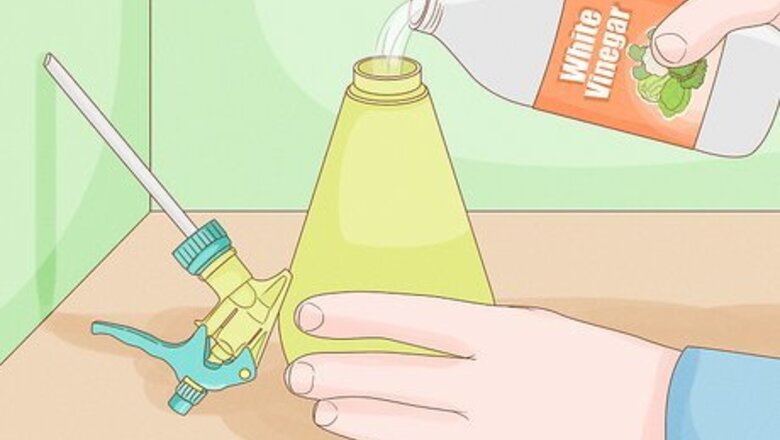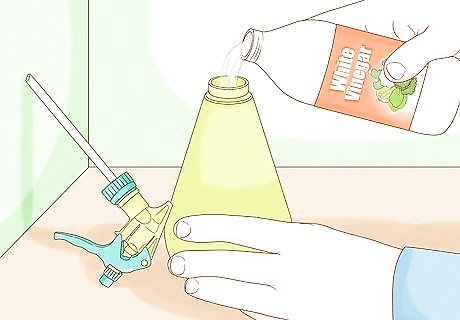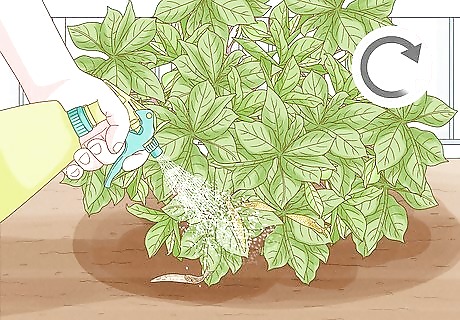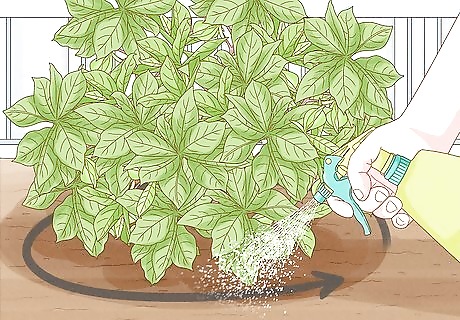
views
X
Research source
Fill a spray bottle with white vinegar.

Vinegar can be used as a natural pesticide. It contains acetic acid, which dries out and kills pests like slugs. To prepare your solution, simply pour the white vinegar into a spray bottle. You can also replace the white vinegar with apple cider vinegar.
Find slugs in your garden.

Slugs like to hide in cool, moist, shaded areas. Try looking under leaves, stones, or logs. If you have trouble finding slugs, try looking at night with a flashlight when it is more cool and damp. For the same reason, you might also notice more slug feeding when it is cloudy or rainy. If you notice dried slime trails, that's a sign that slugs are in your garden.
Spray any slugs you find with the white vinegar.

Spraying the vinegar directly on the slugs will dry them out. If the slugs are gathered under an object like a board or pot, you may want to move them somewhere more accessible before spraying. You can clean up by using a hose to wash away the remains, or just leave them in the garden. Vinegar can damage plants if it gets on them, so be careful not to spray any plants in your garden!
Repeat the process whenever you find new slugs.

You may not be able to eliminate all of the slugs at once. If your slug problem persists, just continue spraying them with white vinegar whenever you find them.
Spray a vinegar barrier around your plants.

You can also use vinegar as a preventative solution. Just spray vinegar around the perimeter of any plants you want to protect. This forms a barrier and prevents slugs from crossing. Again, try to avoid getting any vinegar on the plants, as this may dry them out. Respray the perimeter after it rains to replenish the washed-away vinegar.
Try other natural slug remedies.

If vinegar isn’t working for you, you can control slugs in many other ways. Vinegar isn't the only way to keep your garden slug-free. Try one of these other all-natural methods: Keep your garden bright and dry by pruning low shrubs, thinning plants, and improving drainage. Grow plants that slugs don't like, including ferns, creeping phlox, Grey's sedge, evening primrose, and clematis. Bury a container in the ground so the top is level with the soil, and fill it with beer until about 1 inch (2.5 cm) from the top. Slugs will be attracted by the beer and fall into the trap and drown.















Comments
0 comment